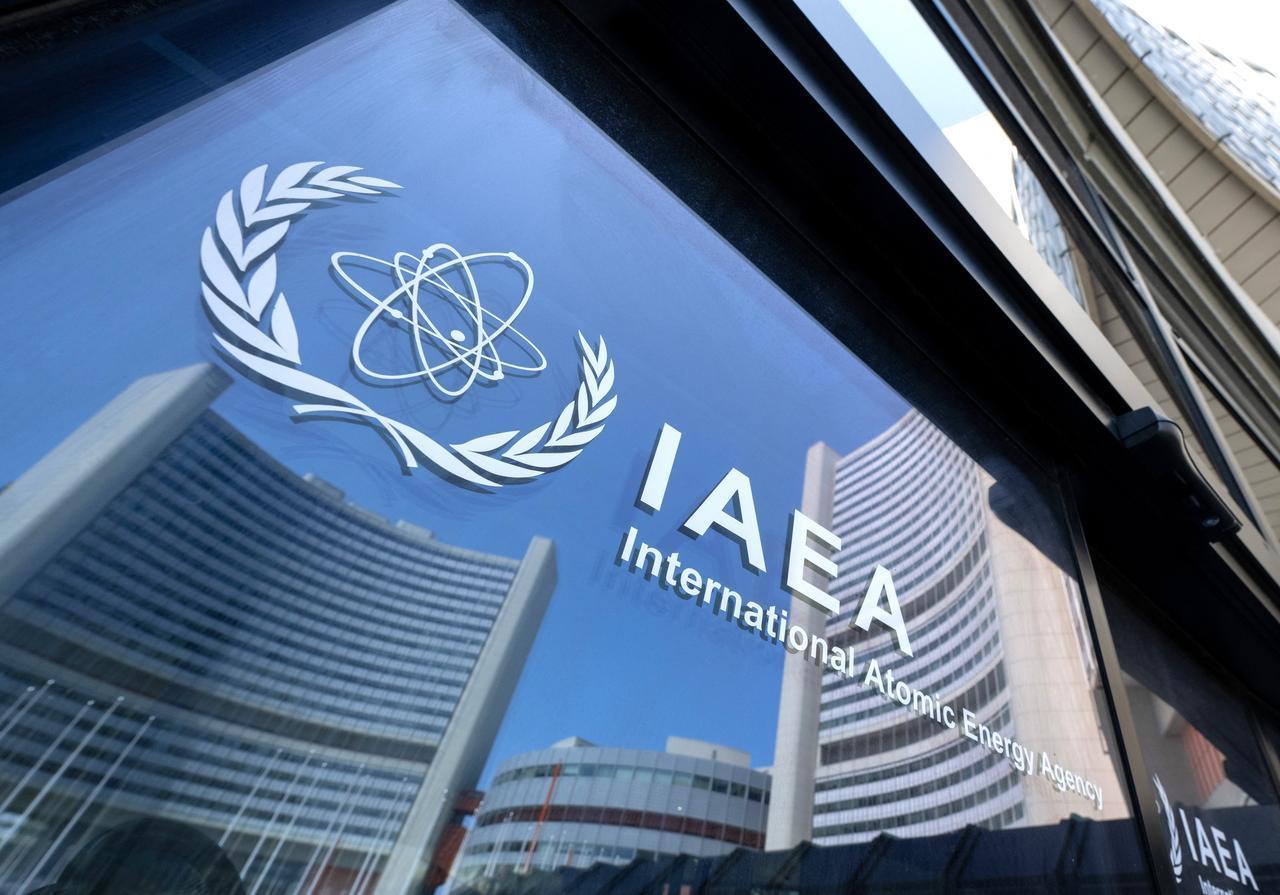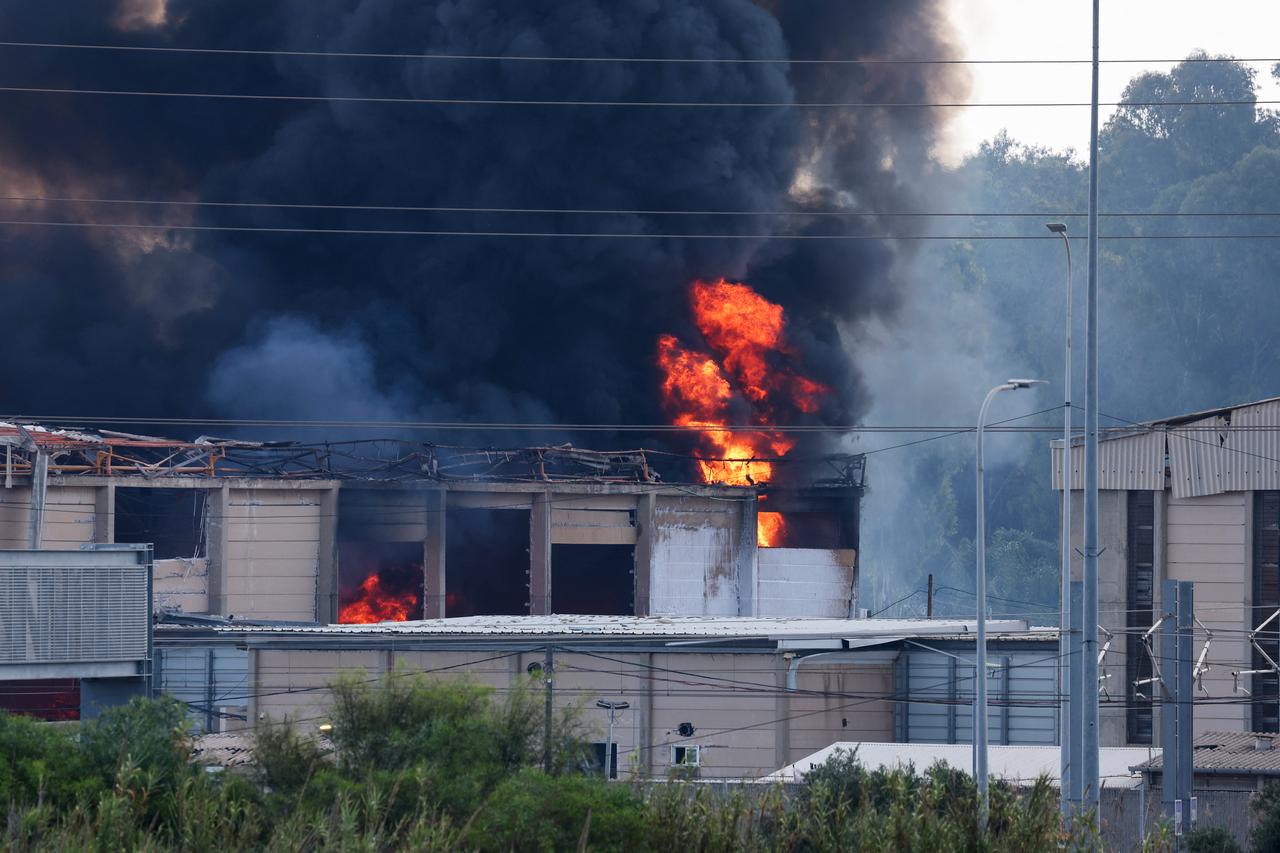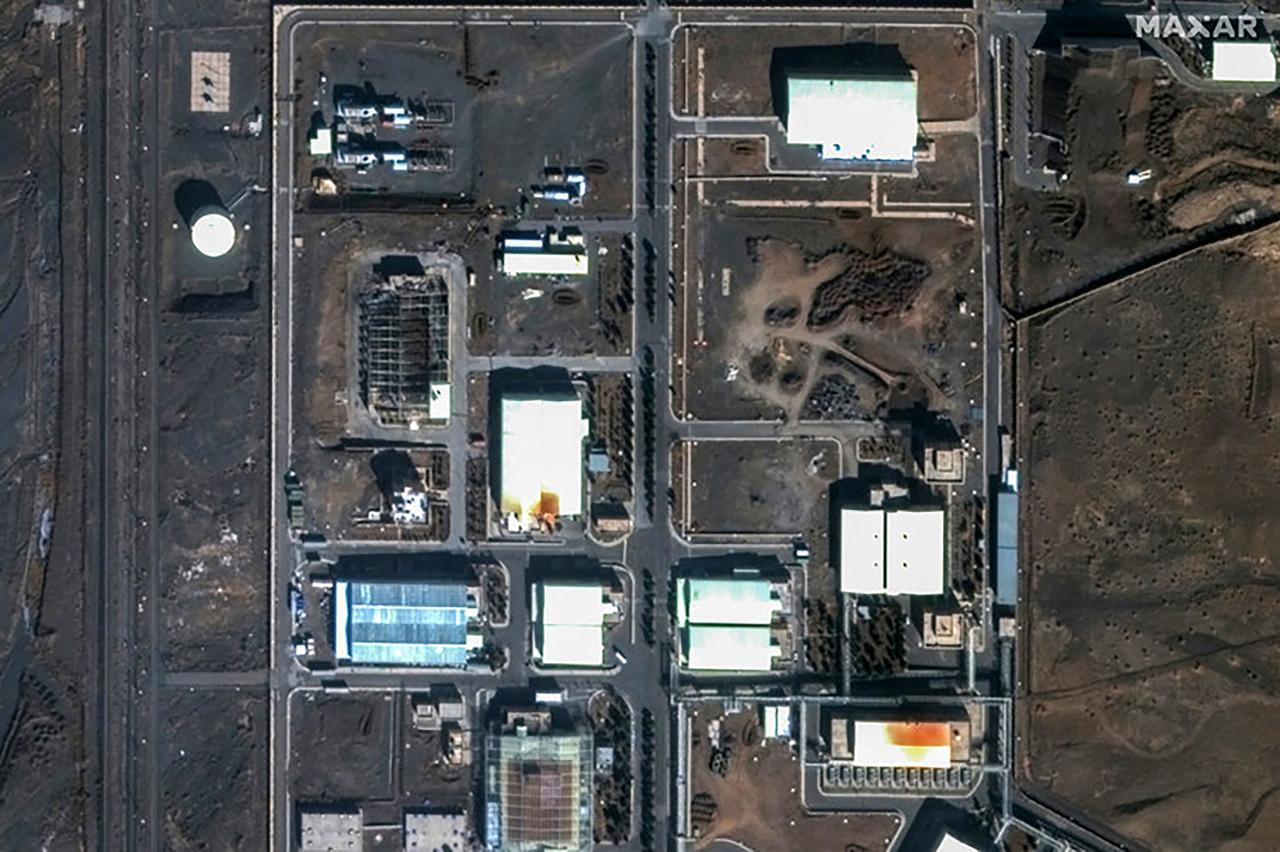
The International Atomic Energy Agency (IAEA) said Thursday it is closely monitoring Israeli military strikes on Iranian nuclear facilities that began nearly a week ago, with the U.N. nuclear watchdog's director general warning of potential radiological consequences.
IAEA Director General Rafael Mariano Grossi said the agency has documented damage at nuclear-related sites in Arak, Esfahan, Natanz and Tehran since the attacks commenced June 13. While no major radiological incidents have occurred, Grossi emphasized the ongoing risks posed by continued military action near nuclear installations.
At the Natanz Fuel Enrichment Plant, attacks on June 13 destroyed the above-ground Pilot Fuel Enrichment Plant, where Iran was producing uranium enriched up to 60 percent. The facility's electrical infrastructure, including substations and backup generators, was also destroyed. Satellite imagery later revealed additional damage to underground enrichment halls.
Grossi reported "circumscribed radiological and chemical contamination" inside the Natanz facility but said there was no external radiological impact. The contamination likely involves uranium isotopes and fluoride compounds that pose inhalation risks requiring protective equipment for facility workers.
"It was limited to this facility. There was no radiological impact externally," Grossi said.
The Esfahan nuclear site sustained damage to four buildings Friday, including a central chemical laboratory, uranium conversion plant, reactor fuel manufacturing facility and an enriched uranium metal processing facility under construction. Two centrifuge production facilities in Tehran and Karaj were also hit June 18.
On June 19, strikes damaged the Khondab Heavy Water Research Reactor, which was under construction and contained no nuclear material. The nearby Heavy Water Production Plant also sustained damage to key buildings, including its distillation unit.

"There is a lot of nuclear material in Iran in different places, which means that the potential for a radiological accident with the dispersion in the atmosphere of radioactive materials and particles does exist," Grossi told the IAEA Board of Governors.
The strikes represent the second time in three years that nuclear facilities have come under attack during conflicts involving IAEA member states, following damage to Ukrainian nuclear sites during Russia's invasion.
Grossi invoked U.N. General Conference resolutions stating that "any armed attack on and threat against nuclear facilities devoted to peaceful purposes constitutes a violation of the principles of the United Nations Charter, international law and the Statute of the Agency."

The IAEA maintains inspectors in Iran despite the security situation, though staff numbers have been reduced. Grossi said safeguards inspections will continue under Iran's Non-Proliferation Treaty obligations "as soon as safety and security conditions allow."
Calling for maximum restraint, Grossi offered to travel immediately to engage with relevant parties and deploy nuclear safety experts. He stressed the need for "constructive, professional dialogue" to prevent potential nuclear accidents.
"Military escalation threatens lives, increases the chance of a radiological release with serious consequences for people and the environment and delays indispensable work toward a diplomatic solution for the long-term assurance that Iran does not acquire a nuclear weapon," Grossi said.
The director general said he remains in contact with regional countries and emphasized the importance of receiving timely technical information from Iranian authorities to inform the international community and coordinate emergency responses if needed.